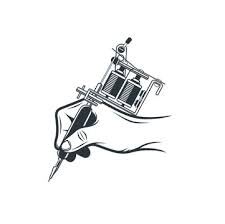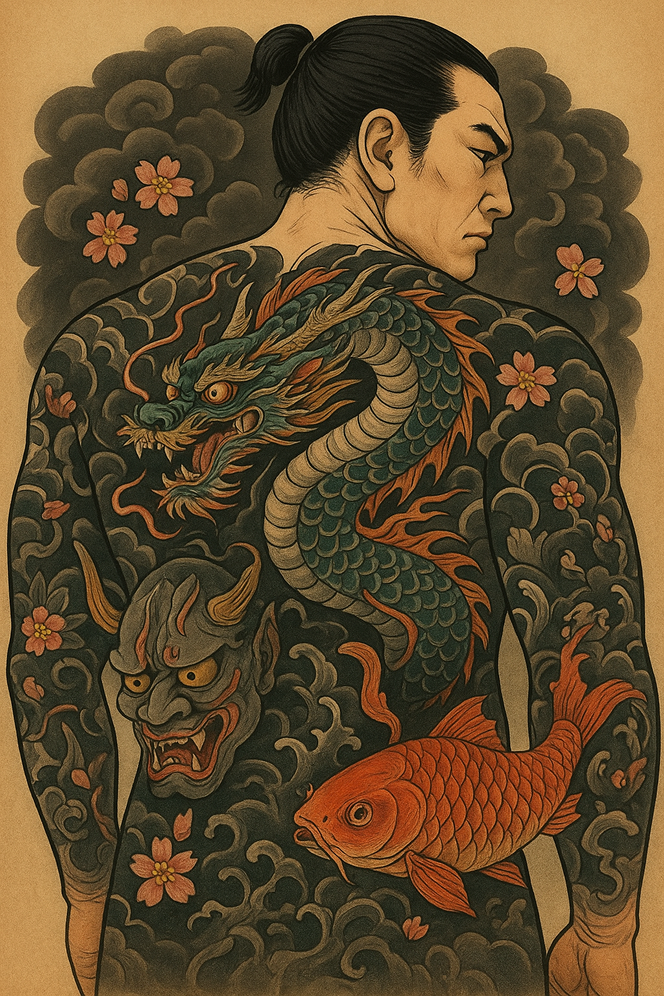In Japan, tattoos have a complex cultural history, especially when associated with the yakuza, Japan’s organized crime syndicates. Yakuza tattoos are instantly recognizable for their intricate designs, deep symbolism, and full-body coverage. These tattoos, known as irezumi, are part of the yakuza’s unique identity and carry powerful cultural meanings.
Though yakuza tattoos are often shrouded in mystery, they represent loyalty, courage, and resilience within the yakuza community. Let’s explore the history, symbolism, and the ongoing relationship between these tattoos and Japanese society.
The Origins of Yakuza Tattoos
Tattoos in Japan date back centuries, with early forms used by certain groups as punishment, marking criminals in visible places. In response, the yakuza reclaimed tattoos, using them to symbolize resilience, defiance, and unity within their ranks. By covering their bodies in large, intricate designs, yakuza members would show their commitment to the group while simultaneously separating themselves from society.
Traditional yakuza tattoos are typically done by hand, using a technique called tebori, which is a painstaking process requiring a high level of skill. Tebori tattoos are known for their bold colors and intricate shading, making them highly valued forms of art.
Common Yakuza Tattoo Symbols and Their Meanings
Each element of a yakuza tattoo carries meaning, often chosen carefully to represent the wearer’s personal story, beliefs, and role within the organization. Here are some of the most common motifs and their significance:
- Dragons
Dragons symbolize strength, protection, and wisdom. In Japanese mythology, dragons are protectors of the sea and skies, and they often represent powerful, benevolent forces. A yakuza member with a dragon tattoo may be seen as a guardian within the organization or someone who carries great inner strength. - Koi Fish
Koi fish tattoos symbolize perseverance and resilience, as koi are known to swim upstream, overcoming obstacles. In Japanese culture, koi are also believed to transform into dragons after a long, difficult journey, embodying the values of determination and courage. This makes them a fitting symbol for yakuza members who value endurance. - Samurai and Bushido Symbols
Samurai imagery, including depictions of famous samurai or symbols like swords, represents honor, loyalty, and courage. Yakuza members often admire the samurai code of bushido, which includes values like loyalty to one’s group, bravery, and integrity. Samurai tattoos emphasize the yakuza’s connection to these ideals and reinforce a sense of honor. - Cherry Blossoms
Cherry blossoms are a symbol of the fleeting nature of life, a theme rooted deeply in Japanese culture. The short blooming period of cherry blossoms represents both the beauty and impermanence of life. This aligns with the yakuza’s acceptance of the impermanence of their lifestyle, often marked by risk and danger. - Tigers
Tigers are symbolic of courage and strength. In Japanese folklore, they are associated with protection from evil and bad luck, making them popular tattoos among yakuza members who want a talisman against misfortune. Tigers are often paired with dragons, symbolizing the balance between powerful forces. - Oni (Demon Masks)
Oni, or demon masks, are thought to ward off evil and protect the wearer. Oni tattoos represent the wearer’s fierce, intimidating side, as well as their commitment to protecting their community. While they look fearsome, oni are viewed as guardians who punish wrongdoing, aligning with the yakuza’s view of themselves as protectors of their own code. - Phoenix
The phoenix is a powerful symbol of rebirth and transformation, often chosen by yakuza members who have overcome hardship or wish to symbolize a “rebirth” into a new identity within the yakuza. The phoenix represents hope, renewal, and resilience in the face of adversity.
Yakuza Tattoos in Modern Japan
In modern Japanese society, tattoos still carry a strong association with the yakuza, which has led to a cultural stigma around visible tattoos. Many Japanese public places, such as bathhouses and gyms, still prohibit visible tattoos. This has discouraged many Japanese citizens from getting tattoos, especially full-body designs, which remain strongly associated with the yakuza and organized crime.
However, attitudes toward tattoos are gradually shifting in Japan, especially among younger generations who see them as a form of self-expression rather than a symbol of criminal affiliation. Some people now appreciate traditional irezumi for its artistic and cultural value, separating the art from its association with the yakuza. Internationally, Japanese-style tattoos have become admired and sought-after, highlighting the skill, precision, and cultural depth of Japanese tattooing.
The Art of Tebori: Hand-Poked Tradition
Traditional yakuza tattoos are often created with the tebori method, a hand-poking technique that uses long, sharp tools to apply ink beneath the skin. This method is painstaking and requires immense patience and skill, as it involves repeatedly puncturing the skin to achieve depth and detail. Tebori tattoos take longer than machine-made tattoos, and the process is known to be more painful, underscoring the wearer’s commitment.
Though fewer artists use tebori today due to the time and skill required, some skilled tattooists continue to uphold this ancient tradition. Tebori remains a highly respected craft and adds a unique texture and quality to the tattoo, lending an authenticity that resonates with yakuza members.
Are Yakuza Tattoos Becoming Less Common
While yakuza tattoos remain iconic, fewer yakuza members today opt for full-body tattoos due to increased surveillance and stricter anti-yakuza laws. These tattoos can make members easily identifiable, which can be a disadvantage in a society increasingly focused on curbing organized crime. Some modern yakuza members now choose to forego tattoos or only get smaller, less visible ones that allow them to blend in more easily.
The Enduring Appeal of Yakuza Tattoos
Despite their controversial history, yakuza tattoos have captivated the world, not only for their beauty but for their layered symbolism and cultural significance. Today, people around the world admire and adopt Japanese tattoo styles, inspired by the precision, artistry, and rich cultural meanings embedded in traditional irezumi. While yakuza tattoos have evolved over time, they continue to represent a unique and resilient art form, reminding us of the complex relationship between identity, loyalty, and self-expression.
In the end, yakuza tattoos are more than just body art—they are part of a legacy that honors tradition, resilience, and the deeper aspects of Japanese culture. Whether admired for their artistry or chosen as a personal tribute to Japanese heritage, these tattoos hold an enduring place in the world of tattooing.

I’m Tommy Hanks, a professional tattoo artist with over a decade of experience under my belt.
I’ve always had a passion for art, and tattooing has become my favorite medium for expressing creativity.
I own and operate a successful tattoo studio, where I get to create intricate designs and connect with a diverse range of clients.
In addition to my work in the studio, I run a blog called taggrs.com.
Through my blog, I share my experiences, insights into the latest tattoo trends, and tips for both aspiring tattoo artists and enthusiasts.
Tattooing is more than just a job for me; it’s a lifelong journey, and I love being able to share that journey with others.

